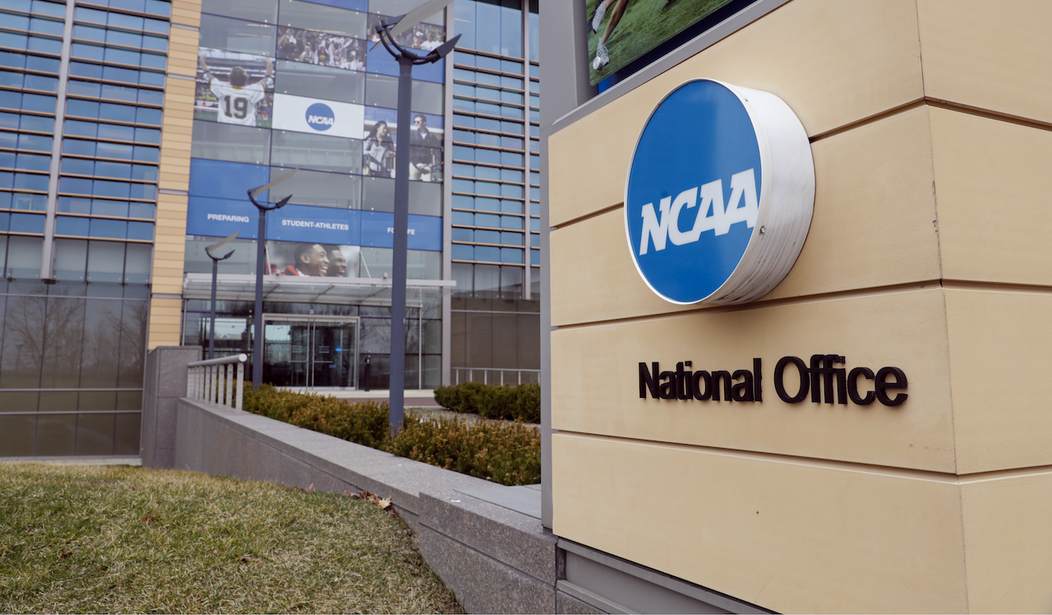Last year if you had anything to do with an NCAA event, you couldn’t escape it. On television, at games, on sports media, it was always there: the encouragement to vote. These public service announcements to make sure your voice was heard were often barely concealed appeals to vote for a particular presidential candidate as well.
The NCAA took the unprecedented step of encouraging athletic programs to cancel activities on Election Day 2020. Then they grandstanded with a special page full of information on how important it was to vote in 2020, which included a video from various student-athletes on how they were encouraging people to vote.
After the last election, NCAA regulations were supposed to give student-athletes the day off every year for the election. The only problem: it wasn’t enforced.
Last September, amid a raging pandemic, a contentious presidential election and a social justice movement that extended to college campuses, the NCAA approved a historic measure, mandating that schools hold no practice or competition on Election Day each year moving forward.
But a year later, on Election Day 2021, dozens of schools are holding required activities for athletes after having NCAA waivers approved during a process that some feel is unfair, disappointing and proof that the policy needs further examining.
“Initially, is it discouraging? Yes,” says Ryan Cassidy, a former Rutgers football player and the national chair of the Division I Student-Athlete Advisory Committee (SAAC). “We want every school to take advantage of civic engagement as a whole. We see it as more than a day off. This is a civic duty.”
That’s right. The NCAA offered waivers to schools to hold athletic activities on an Election Day when much less was at stake than encouraging students to vote (for Biden).
Over at The Athletic, Dana O’Neill points out how it’s yet more proof that the NCAA ruins everything it touches:
When it was established a year ago, coaches proudly flooded social media showing their commitment to it, showing pictures of themselves and their athletes either out and about, or having conversations about things other than their opponent. It was encouraging and powerful, and naturally, fraudulent. The NCAA put out a press release this morning, proudly announcing the one-year anniversary — “It’s the first Tuesday after Nov. 1, when games, practices, and other countable athletic related activities are prohibited in Division I to allow for civic engagement activity and education.’’ Stunningly nowhere did it mention the upwards of 100 football teams and other sports that are participating in games, practices and other countable athletic-related activities.
The fault here is twofold. At the macro level, it once again lands at the doorstep of the NCAA, an organization that simply cannot get out of its own way and do anything right anymore.
Was last year different because it was a presidential election? Are local and state elections less important to the NCAA? O’Neill thinks so.
It was easy to do this last year, when there was a public movement behind it and a divisive presidential election to consider. This is a quieter Election Day, mostly gubernatorial elections or smaller local ones, the ones that folks skip or don’t quite understand what they’re voting for. Yet at some level, they’re even more important than the national one. These are the elections in a person’s own backyard — their mayor and school board, the people who impact a person’s life on the daily. What an opportunity missed, to actually educate young people on the importance of local elections, or explaining what all of the various job titles — prothonotary and the like — are. Instead by insisting that they can blow off this All Vote, No Play day coaches, merely reinforce the inaccurate message that these elections don’t matter so much.
O’Neill makes a brilliant point. It was easy to make a big deal out of making sure people vote. The NCAA joined tons of other organizations in grandstanding about voting. The Most Important Election Ever™ meant that everybody had to show up and make their voice heard — especially if they were speaking out for Biden.
This year, the stakes aren’t as high. Unless you live in Virginia. Or New Jersey. Or Minneapolis. Or Atlanta. Or any place where city, county, and state races are up for grabs. But that doesn’t really matter to the NCAA because those races don’t allow them to score political points.
News flash to the NCAA (and everybody else). The most important election is always the one that’s happening right now. We should encourage each other to vote no matter who’s on the ballot. No matter what’s at stake. And no matter what’s in it for your organization.










Join the conversation as a VIP Member